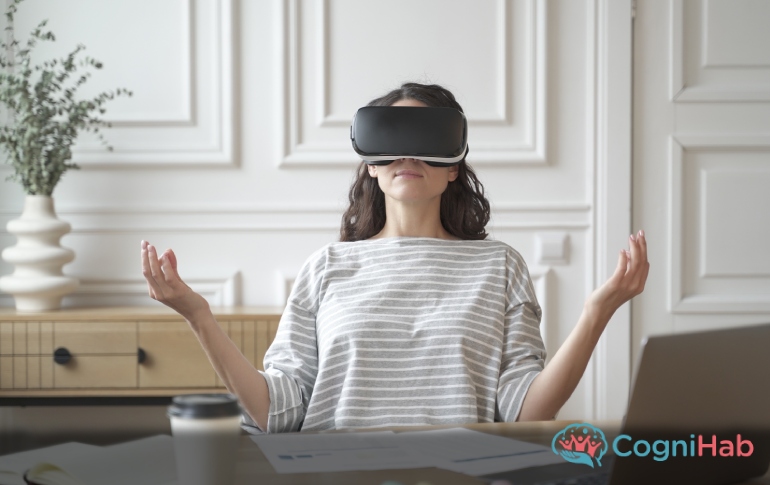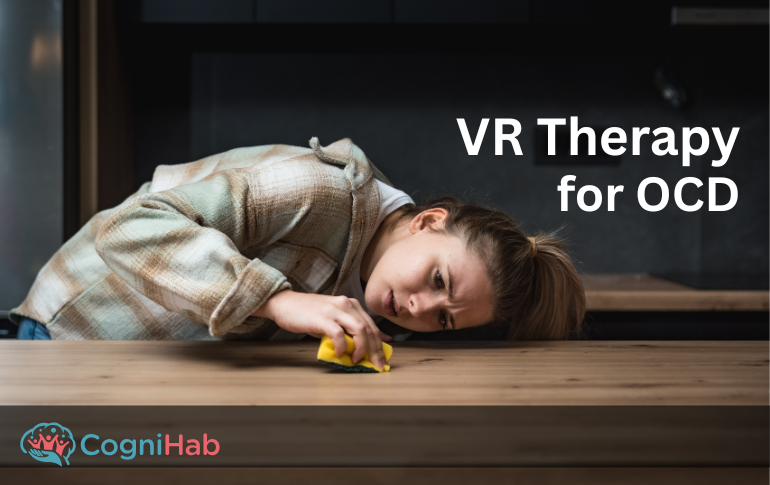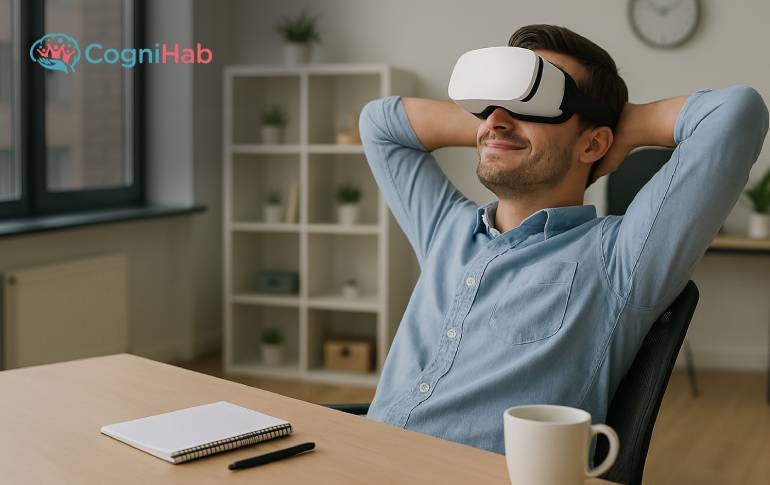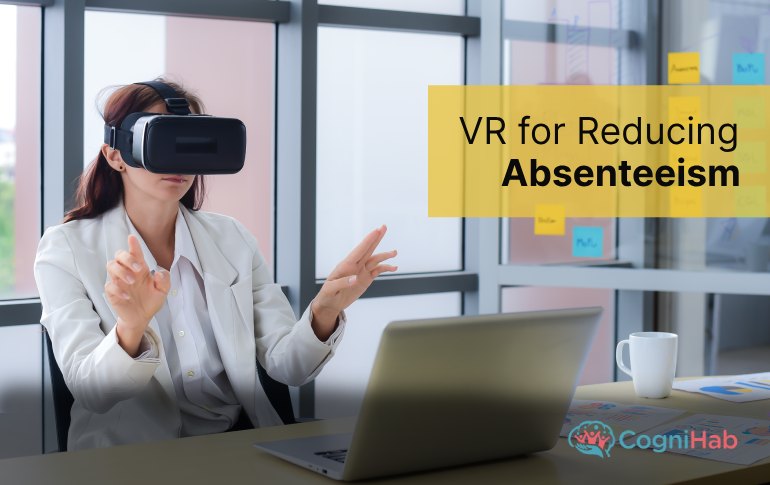Depression Awareness: Tips for Managing Depression
The luxury of gathering with others and having a discussion about something is a thing of the past thanks to technology. People nearby can help you let out positive or negative emotions. It loses all meaning when you don't have anyone with whom to share your success or accomplishment. Lack of a close friend for an extended period of time can cause depression.
There are many ways of managing depression along with depression therapy online. In addition to that Virtual Reality programs also help with cognitive behavior therapy for depression. However, before getting into tips it is important to understand depression and its signs.
Depression signs and symptoms
Around 280 million people worldwide suffer from depression, which is the most prevalent mental illness. Furthermore, among teenagers and young adults between the ages of 15-29, this is one of the most common causes of suicide. WHO also stated that more than 700,000 suicides each year are caused by depression. Source: who
A persistent sense of sadness and loss of interest are symptoms of depression. Clinical depression, also known as major depressive disorder, affects how you feel, think, and behave and can cause a number of emotional and physical issues. You might find it difficult to carry out your regular daily tasks, and you might occasionally think life isn't worth living.
Although you might only experience depression once in your lifetime, most people experience multiple episodes. People can experience depression relapse even years later. The person may experience the following major symptoms on a daily or regular basis.
- Feeling sadness, tears, emptiness, or a sense of futility
- Sudden fits of rage, irritability, or frustration
- Loss of interest in the majority of your favorite or routine activities
- Headaches or back pain
- Sleep disorders
- Fatigue
- Weight loss and decreased appetite, or weight gain and increased cravings for food
- A feeling of unease, agitation, or worry
- Sluggish speech, posture, or other body movements
- Feelings of guilt or worthlessness, or self-blame
- Problems with memory, concentration, decision-making, and thought
- Feeling suicidal or attempting suicide
Although it is less likely, depression can also affect children. Younger children may exhibit signs of sadness, irritability, clinginess, worry, aches, pains, refusal to attend school, or being underweight.
Teens may experience symptoms such as sadness, irritability, feeling down and unworthy, anger, poor performance, or poor attendance at school. In addition, they may exhibit other traits like being overly sensitive, abusing alcohol or drugs recreationally, overeating, or sleeping excessively. Many teenagers choose to harm themselves in addition to losing interest in everyday activities and avoiding social interaction.
Related post: Treating Depression and Anxiety with Virtual Reality
Tips for Managing Depression
With depression, even a daily routine becomes difficult to perform. Going to work, socializing with friends, or even just getting out of bed can feel like climbing a mountain. Several tips may help in managing depression.
1. Take medical help
Getting medical assistance from a qualified psychiatrist is strongly advised. The best course of action is to consult a psychiatrist when a person is dealing with a serious mental illness.
Extreme mood and behavior swings as well as an unusual pattern of disruptions in daily life brought on by mental health problems serve as clear indicators of this.
Working with a therapist is frequently a crucial component of effectively managing depression. They are well-versed in the physical and mental signs and symptoms that result from psychological problems.
They can identify the underlying cause of your problems and collaborate with you to create an effective treatment strategy. Psychiatrists offer both treatments and medication to address your problems.
2. Connect with people
Making strong social connections is one of the most crucial things you can do to support yourself when you're depressed. This supports the person's psychology and fills their inner emotional void.
When you doubt yourself, it can be really difficult to come together at times. However, being surrounded by the right people will always make it possible to build a solid support system for the patient.
It can make a big difference in your depression when you know that your loved ones are there to support you.
Depressive support groups, where people go for group therapy, are another option. It might involve a local community group that meets there, or you might locate an online support group that is suitable for your needs.
3. Practice self-love
You gain self-worth and self-confidence when you love yourself, which boosts your mood. You'll feel happier and take better care of yourself if you can learn to love yourself.
You are compelled to tend to your own needs by self-love. You'll learn to take care of yourself, which will help you grow into the person you want to be. You'll gain a firmer understanding of who you are and you'll celebrate the grace and liberation of being true to yourself.
Our brain cells become more relaxed when we take care of ourselves. This also helps us feel less stressed and sleep better. People who experience stress and anxiety struggle to make wise choices in life. Self-love encourages individuals to make positive decisions.
Also read: Role of Virtual Reality in Anxiety Reduction
4. Eating habit
Numerous studies have demonstrated how treating and preventing mental illness can be accomplished by improving nutrition. There are a variety of essential nutrients for the brain that can impact depression. For instance, a study discovered a link between depression symptoms and zinc deficiency. A key to easing your symptoms might be a better diet. Source: National library of medicine
Before making any kind of change, it is, however, always advisable to consult with your doctor.
5. Regular exercise yoga and meditation
Yoga and exercises are a good ways for managing depression. People who are depressed may find benefits from exercise physiologically. Stress is reduced and you may feel great after engaging in physical activity.
Additionally, as you get stronger and more physically fit, the sense of accomplishment you get from completing a fun and difficult workout can raise your self-esteem. You'll feel better emotionally and physically when you use a regular exercise routine to combat depression.
In addition, you can try guided meditation, which will assist you in filling your mind with positive thoughts and banishing negative ones. VR-based guided meditation is another option for a wonderful experience and mindfulness.
Conclusion
There are many ways for managing depression. Depression therapy online is also helpful for people who are reluctant to visit any therapist. You can also take the help of CBT or known as cognitive behavior therapy for depression.
Virtual Reality is one of the best tools that can incorporate CBT, Yoga, and meditation and also help to deal with depression. It can customize as per the need of the patient to serve them in the best way.
If you also want to explore more about the features of Virtual Reality and its depression suite, you can visit the Cognihab website. Cognihab is a techno medical company, serving mankind with health technology solutions.







